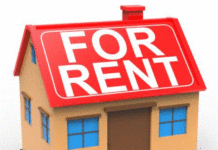Opportunity cost
“The loss of potential gain from other alternatives when one alternative is chosen.” This, my friends, is the definition of a term in economics referred to as “opportunity cost”. It basically states that anytime you choose something, you are also missing out on the opportunity to choose something else. While this principal may seem like common sense, you may be amazed at how often you neglect to consider it in financial decisions.
For instance, an example from my own life.
As a police officer, I am scheduled every week to work 40 hours. These hours are paid at a set rate that is pre-determined per our contract with our district. Per this contract and state law, any hours worked in addition to the 40 I am scheduled for must be paid at an overtime rate. This is fairly standard procedure for most occupations.
Now when I look at decisions from a purely financial standpoint, I have to acknowledge that every decision NOT to work when work is available is actually a decision that costs me money. Even if all I’m doing is sitting at home on my couch not moving. My decision not to work results in me losing money I could have made, and this lost money would be my opportunity cost. Say for instance I want to go to a Golden State Warriors game on my day off. Most people would consider the price of the ticket, plus maybe the transportation costs and the food they are going to have to pay when inside the arena. Let’s say these costs add up to $500. Conventional thinking would say you have to ask yourself if it’s worth it to pay $500 to go to the game. The problem is, you’re not taking into account the money I would have made had I picked up an overtime shift that day instead (assuming one was available). If I would have made $500 to work the overtime shift, that is money I’m losing in opportunity cost. So the REAL cost of the Warriors game is $500 for the ticket and expenses, and $500 in lost wages because I didn’t work. That original $500 quickly becomes $1000 when I include opportunity cost. Still want to go to that game?
So What’s This Got To Do With Me?
Now how does this apply to real estate investing? Well that depends on what your goals are. Let’s say you’ve been diligently searching for your first house to flip. You know if you can make $50,000 on a flip that you’ll be able to buy at least two investment properties with that, and boy are you excited. You stay up late at night thinking about it. You’ve written down your goals. You’ve shared them with your accountability partner. You are gonna make this happen. You’ve been saving your money, and you are just $10,000 shy of your contribution to the project. You’re working every extra shift that comes out. You know you can have that money saved up in another 4 months at the rate you are currently saving.
Your phone rings. Your friend says he wants you to go to the game with him this Friday. Problem is, you are scheduled to work that day for time and half wages. Now, you know a coworker will gladly pick up the shift. He bought a car he couldn’t afford and is stretched to make the payments you see. As you consider whether or not you should go to the game, you may be calculating whether or not that $500 ticket is worth it. This will set you back a week on your goal. You’re not sure if you should do it. While you may be on the fence about it, how would you feel if you knew the true cost of that game was really $1000? Would you still have to think about it?
Opportunity cost is huge. Every decision you make takes you closer to, or further from, your desired goals. In this case, that one basketball game probably isn’t worth it at this point in your journey. Now the day should come when you can go without even thinking about it. But today? That $1000 is not just $1000; it is 10% of the distance to the amount you need to save before you can buy that house to flip. Now let’s take this one step further. None of us can know the future. Let’s say that an AMAZING opportunity arises and someone contacts you with a great deal on their house. Problem is, you are $1000 short of the money needed to buy it because of that basketball game. This guy isn’t going to wait a week for you to earn that money, he’s getting it under contract today. With a sickening feeling, you make a phone call to another investor you know and he agrees to split the deal 50/50 with you by providing the other half of the money. While you still got a piece of a great deal, you could have had the whole pizza. Now that basketball game didn’t just cost you $500, and it didn’t’ just cost you $1000. It cost you half of an amazing deal. That $50,000 you were looking to make on your first deal just became $25,000. Ouch. $25,000 for one game? Better have been game 7 of the NBA finals.
Now this may seem like an extreme example, but the reality is it’s rarely ever one decision over one basketball game that affects your future. It’s the Warriors game, plus the day you slept in instead of going to work, plus the time you waited too long to buy the airlines tickets until they were the most expensive, plus the time you put off reaching out to that client and they went with someone else, etc. ALL these decisions slowly add up over time, and the results can be exponentially devastating. Why does this happen? We don’t consider the opportunity cost of our decisions. We don’t chart our progress to know what our decisions are really costing us. We don’t look for ways to maximize our time. This hurts us in several ways. Now the opposite of this is looking for ways to avoid paying an opportunity cost. While the facts are that it’s impossible to avoid opportunity cost completely, we can still minimize its effect on our plans.
Do I have your attention yet?
Having Your Cake And Eating It Too
As the old saying goes, “you can’t have your cake and eat it too”. All this means is that you can’t enjoy showing off a gorgeous cake to someone, and also enjoy eating it. It’s really a restatement of the existence of opportunity cost. Now as an investor, your resources are finite. Buying one thing usually means not being able to buy another. As a good investor, you need to be looking for ways to avoid that issue whenever possible. I’m going to share some ways I’ve learned to look at the world to minimize missed opportunities. First, a few examples of a common issues faced when confronted with several options that all look good.
- You don’t know whether it’s better to flip houses or buy rentals.
- You don’t know whether you should pay off a mortgage and increase cash flow, or buy more properties and increase net worth.
- You don’t know whether or not you should partner on deals with others and share profits but increase volume, or do fewer deals but keep all the profit yourself.
Find A Way To Have Both
While it’s true that you can’t have your cake and eat it too, what if you learned to look at situations in a way where you don’t have to? For instance, what if you took a bunch of pictures of the cake to share with other before you ate it? Those pictures might be almost as good as the real thing, plus you could still eat the cake. This, my friends, is how you want to start looking at investing.
A common question in real estate is whether it’s better to flip houses or invest long term. While there is no clear cut answer to that, most investors would agree real wealth is built by buying and holding for long term. The problem with that strategy is it can take a long time to save up the down payment needed for each buy and hold property. Here is where your creativity should start kicking in. Assuming you have the skill set to both flip and hold long term, it may be in your best interest to flip what houses you can and use that profit as the down payment for your rentals. By designing a hybrid system of flipping and converting that money to rentals, you can grow your portfolio at a much faster rate than by utilizing either strategy on its own. Why not have both?
Another common question is whether or not it’s better to pay off a loan to increase cash flow, or to re-invest that money into more properties. The upside to paying off a mortgage is you don’t have to pay the principal and interest anymore. You also somewhat lower your risk as you eliminate your debt. The downside is you lose the ability to use that money for other ventures.
As of the time of this article, interest rates on investment property are around 4.5%. Primary residences are close to 3.75%. The question I ask myself is, do I use my money better saving the 4.5% I pay on the loan, or the 10-15% I can make by purchasing investment property? While for me this question has an easy answer, for others it’s not always so simple. One way to accomplish paying off the loan while also having access to the cash is a Home Equity Line Of Credit, or HELOC. A HELOC is a line of credit where you don’t pay any interest until you withdraw the money. It works just like a credit card, but because it is secured by the property the interest rates are much lower (Often sub 4%). By paying off your mortgage then setting up a HELOC, you can avoid paying principal and interest payments and still have access to the money should a good deal come around you don’t want to lose out on. Best of both worlds.
As you can see, what originally may look like an either/or decision can sometimes be changed to a both/and solution with a little creative thinking. The more options you have, the better you can plan for situations like this. So read up and educate yourself on various investment strategies and empower yourself to see problems from angles that other miss!
Have any interesting stories or examples of when you were able to have your cake and eat it too? Share them in the comments below!













